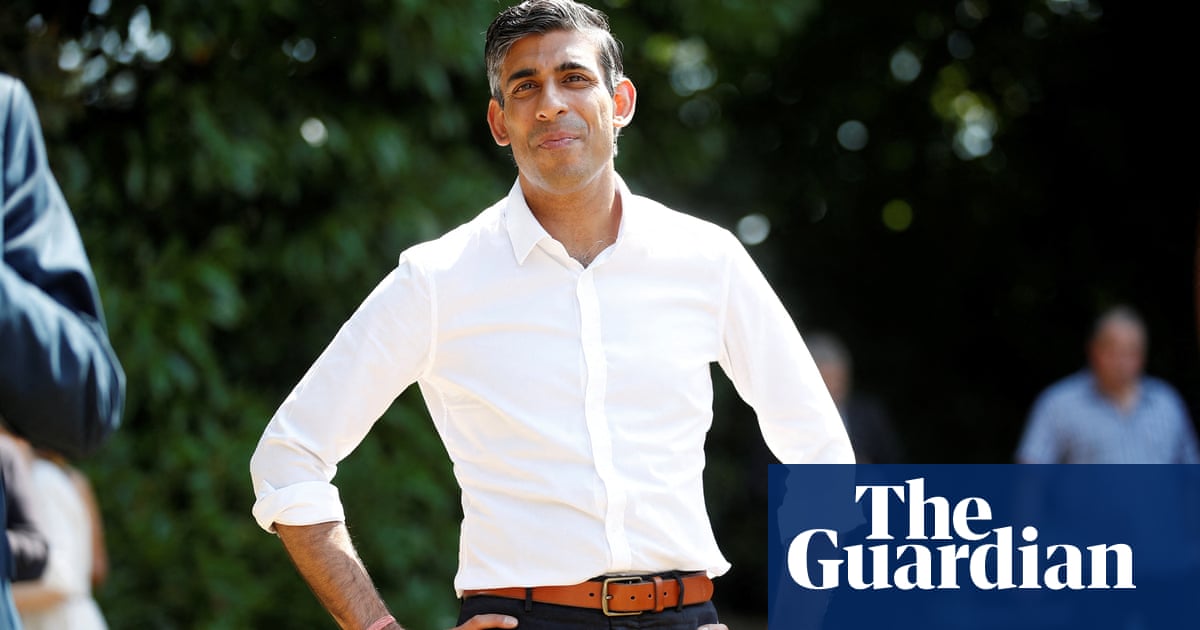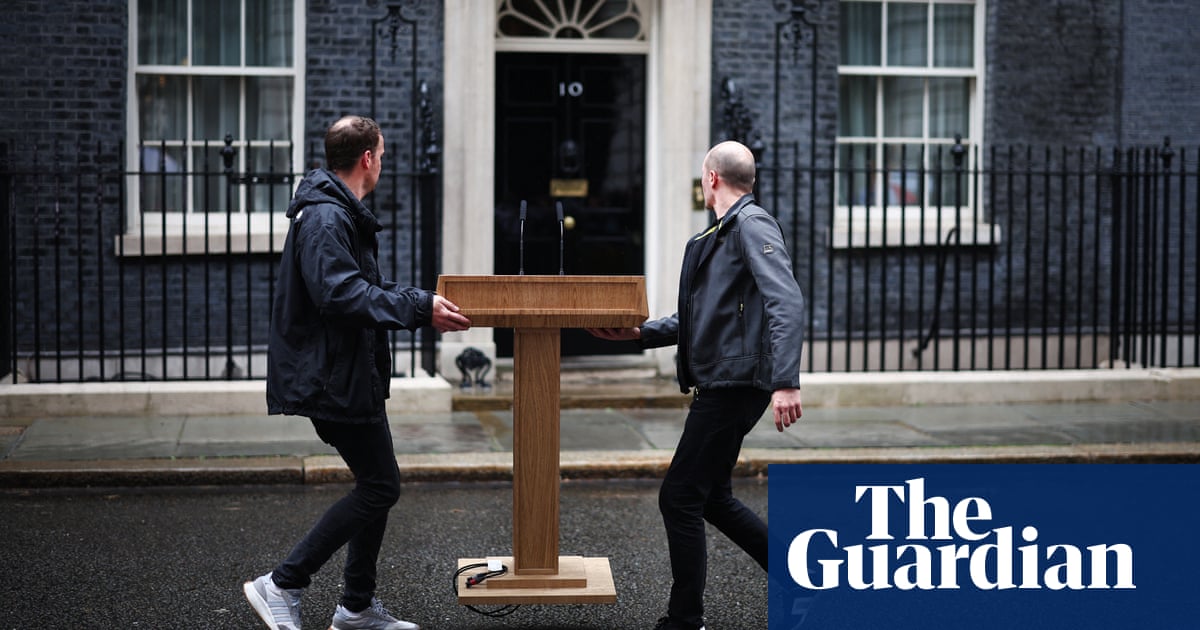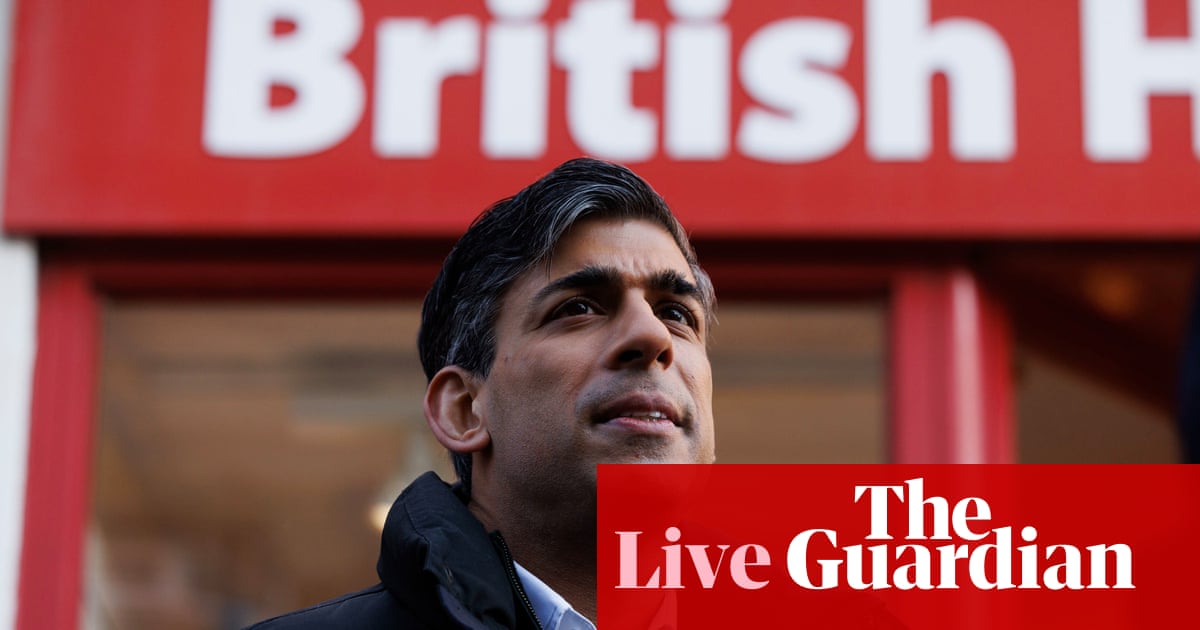
Rishi Sunak was installed as the UK’s prime minister nearly a year ago to bring stability to a country, economy and political party in turmoil wreaked by his two predecessors. His staid strategy to keep the Conservatives in government has plugged some holes in the sinking ship – but not yet made it seaworthy again.
With Sunak’s personal ratings dwindling, Conservative MPs getting restless and a general election fast approaching, Downing Street has drawn a line under the past 12 months and set its sights on the next.
“We’re moving into a different phase of government,” said one No 10 source. “It’s not a shift in belief or values, but the PM finally feels able to stretch his legs.”
Characterised as a plan to “let Rishi be Rishi”, advisers want him to be less buffeted by events and stop living in the shadow of Boris Johnson and Liz Truss.
They are wary of characterising the moment as a “reset”. Such attempts by previous Tory prime ministers proved to be futile. But Sunak has laid down a marker this week, using a speech that rowed back on key green pledges to set out his broader disillusionment with what he called the “short-termist” approaches of previous governments – Tory and Labour.
Net zero was the first issue targeted by Sunak . Others in the crosshairs are said to include HS2, education and public services.
A strategy about regaining control of the political narrative began unsteadily with the leak of his environment plans. These had been intended to be held back until closer to the annual gathering of politicians at the Conservative party conference, which begins in Manchester next Sunday.
The conference slogan will be “long-term decisions for a brighter future”. Insiders said it was designed to demonstrate Sunak’s willingness to confront difficult truths and do things that risk making him less popular, in the national interest.
It was Margaret Thatcher’s address at the 1982 party conference that Sunak would channel, sources said. Her speech railed against “false promises” and warned that governments promising to tackle inflation but backing down “when the going got tough” had made voters cynical.
To a standing ovation, Thatcher finished her speech by declaring: “We will do what must be done. We will tell the people the truth and the people will be our judge.”
Sunak will deliver a similar message at conference and over the following months, in an attempt to cast aside the days of Johnson’s boosterism. Sunak hopes his convictions and personal vision will shine through enough to put the last 13 years of Conservative government and four prime ministers behind him.
Doing so will be vital to his chances of success, according to Robert Colvile, the director of the Centre for Policy Studies and author of the Tories’ 2019 election manifesto.
“It’s been clear from the start of his premiership that Rishi Sunak can’t win the next election as a Conservative, but he may be able to win it as Rishi Sunak,” Colvile said.
“However, over the last few months his personal ratings have fallen, partly because he’s become associated with the party’s missteps and its wider brand. Some people have been clamouring since the end of last year for a ‘vision speech’ and instead they got the five pledges.”
Colvile cautioned that the polls and state of the economy meant it remained a “very, very uphill task for the Conservatives”.
But he said the sorts of voters who might have struggled to afford a new electric vehicle or to replace their boiler under the old net zero targets “are the ones in play before the next election”.
The disdain for “short-termism” is genuine, Sunak’s allies insist. “He comes into meetings and asks ‘how is this policy going to make the country a better place in 20 years’ time?’” said one.
But most senior Tories accept it is disingenuous to claim there is no political motivation to Sunak’s new strategy.
Trying to draw dividing lines with Labour and do more to rally the Tory grassroots is viewed as vital to stemming abstentions at the next election.
“We can’t do what Labour did in the run-up to 2010 and just give up, because the result ended up being a lot closer than expected,” said one government source. “Even if the most likely result is a Labour majority, we need to be in full-on damage limitation mode.”
Sunak’s failure or success will depend in part on the ability of Tory whips to keep MPs in line. “Divided parties don’t win elections” is the mantra instilled into those in charge of enforcing discipline among the parliamentary party.
Members of the moderate caucuses, known as the Tory Reform Group and One Nation Conservatives, have so far largely kept their grievances private.
The only sting for Downing Street after the net zero announcement came when Simon Clarke tweeted his concerns. Clarke also wrote in the internal Tory WhatsApp group that ministers could not claim to be committed to getting to net zero by 2050 if they were unwilling to do the things required to get there, sparking a row with the business secretary, Kemi Badenoch.
But the backlash could have been much worse: Sunak abandoning his predecessor-but-one’s green agenda could have been a moment of significantly more peril.
Instead, Johnson has been left to wail from the wings. Given Johnson is no longer an MP, the threat of a rebellion when a vote is eventually held in parliament is much less potent.
Sunak’s issue, though, is that he may have left it too late to set out his vision for the future.
“There is a sense he can’t win a general election,” said one Tory MP and former minister. “People are thinking about that and increasingly irritated. In November his 12 months are up, and it only takes 15% to call a no-confidence vote.”












